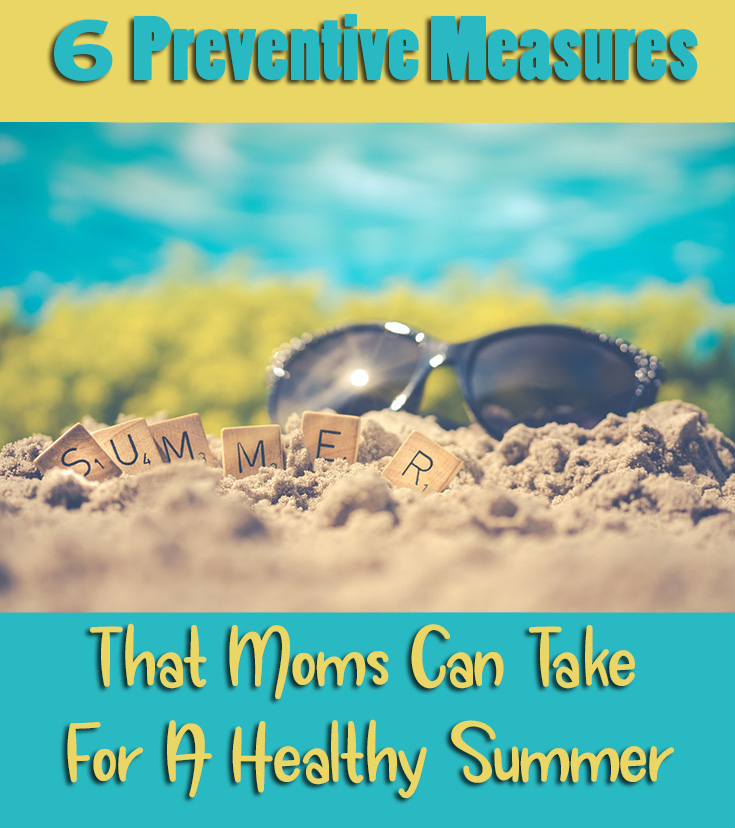Summer is almost here, which means bright, sunny days and fun outdoor activities are just around the corner. However, the warmer season — as pleasant as it can be — also brings with it a new host of potential threats.

Bee stings, run-ins with poison ivy, sunburns and tick bites are most common during the summer when you and the kids are outside. Therefore, it’s important to stay on your guard and take a few preventive measures to keep your family healthy, happy and safe.
1. Stock Up On Sunscreen
You wouldn’t want your kids to hop in a tanning bed, but sending them outside without sunscreen is practically the same thing. Depending on the time of day, the sun could scorch your little ones in a matter of minutes and, if they aren’t wearing sunglasses either, the light could very well damage their eyes and eyelids.
Therefore, it’s important to stock up on shades and sunscreen with a sun protection factor of 30 or greater. You might also purchase an umbrella or sunshade to protect your whole family when the sunshine is simply too hot to bear.
2. Get Vaccines and Immunizations
Is your child due to receive an immunization this year? Most kids will require a vaccine for tetanus, diphtheria, whooping cough, Hepatitis A and B, influenza, measles, chicken pox, HPV and rotavirus before they turn 18 years old. Plus, the COVID-19 vaccine is now available to anyone 16 or older, so now might be a good time to vaccinate your whole family.
Talk to the pediatrician to figure out which immunizations your child still needs and remember to write down any questions you might have about particular vaccines. Then, schedule appointments for the kids to receive their shots before summer rolls around so you don’t have to remember to do so later.
3. Schedule Health Screenings
Regardless of how old your children are, it’s important to schedule health screenings well in advance to ensure they are developing properly. In many cases, your insurance will cover these check-ups, which may include screening for depression, blood pressure, autism, hearing, hemoglobin and obesity.
Of course, you may assume that your little one doesn’t have any health issues. However, it’s best to make sure early on to ensure easy, effective treatment if they do happen to have a problem. Preventive screenings will also allow them to be more active and live a longer, happier life.
4. Know Your Poisonous Plants
Poison ivy, oak and sumac are common plants in the U.S. and incredibly dangerous to young children. Within hours of exposure, their skin will develop an itchy, red rash, which can last two to three weeks. However, it is possible to minimize their chances of running into these hazardous plants
Read up on the various types of poisonous flora and fauna in the region before heading outside. This way, you can identify them before your little ones have a chance to snatch them up. Plus, you’ll know which plants not to burn when you go to make a fire.
5. Check for Hitchhikers
While there is no way of knowing how many Americans get Lyme disease, the Center for Disease Control and Prevention estimates that 476,000 receive a diagnosis and treatment each year. This disease can cause fever, rash, chills, fatigue, joint aches and more and it’s incredibly easy to contract. All it takes is one tick bite to experience an infection that could last years, so preventing tick bites now is essential.
Before everyone comes back inside after the hike, check their hair — or fur — for hitchhikers. If you find any ticks trying to catch a ride, carefully remove them with tweezers and dispose of them.
6. Prepare for Allergic Reactions
If you suspect that one of your kids has an allergy, you might also request screening or testing to figure out exactly what they’re allergic to. However, there’s always a chance that they’ll develop a reaction to something else this summer, so it’s important to plan ahead in case of an emergency.
If your child has a reaction to something this summer, you probably won’t have much time to run and find an Epi pen or a Benadryl. Therefore, you must keep these medicines on hand to alleviate swelling, open up their airways and minimize pain. Otherwise, you may have to call an ambulance, which will stress out your entire family and put a strain on your bank account.
An Ounce of Prevention
As the old saying goes, an ounce of prevention is worth a pound of cure. The more you can do now to prepare for summer, the better off you and your family will be. Plus, if you schedule appointments, study your plants and stock up on essentials now, you won’t have to worry about doing it all this summer.






Speak Your Mind